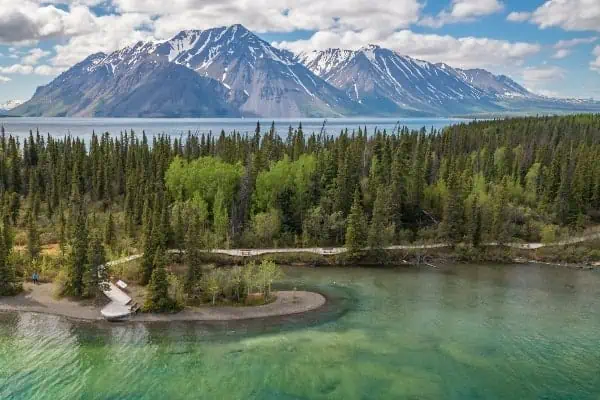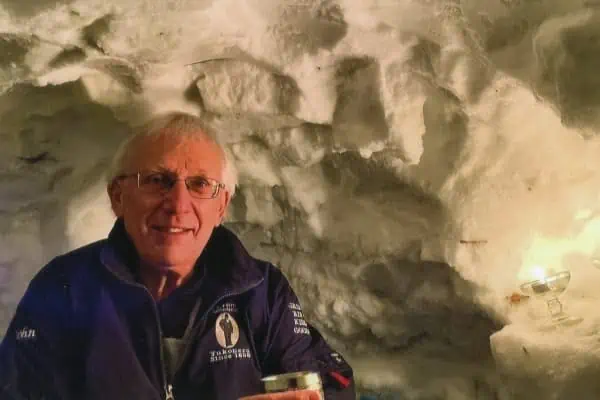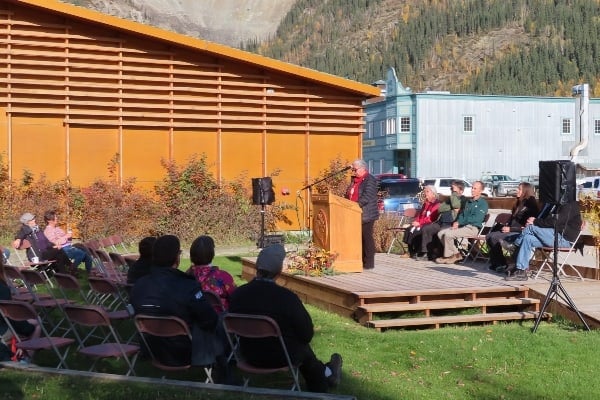At the beginning of his noon hour public lecture David Neufeld said he was working on his book but didn’t want to finish it because then he would lose his excuse to spend so much time on the Yukon River. He said when you say you’re working on a book, you get away with things.
Later, in the cafeteria at Yukon College, Neufeld clarified — he’s working on two books, and he doesn’t know when he’ll be done the one on the Yukon River. What he wants to say keeps changing. The well-attended lecture (about 36 audience members, eating lunch, listening attentively, nodding along) was based on Neufeld’s paper, “Moving Islands and Sticky Islands: living with a culturally plural landscape”. Maybe it will be a chapter in his book.
Every time Neufeld travels on the river he misses the excitement of the first time – he was young, he was with his wife and kids. “At that time it was gobstockingly disorienting. Being disoriented can be delightful.” Now he brings people on his boat, so he can watch their excitement.
“You share it,” he says. It’s hard to explain Neufeld’s fascination with the river. It has to do with two ways of seeing the world, with the river at the centre. Neufeld is trying to tell the story about relationships between “aboriginal people, new comers, and the environment”. But before he can, he has to understand his own cultural view. His narrative keeps changing.
Neufeld is a retired Parks Canada historian. He learned to realize that everyone tells different stories about the same place; the stories we tell are cultural narratives. He said for the first time since non-aboriginal people came to the Yukon, there is work underway to bridge the cultural gap between the stories we tell each other. Official work, anyway — he concedes there were probably always conversations like the ones he’s interested in having.
Neufeld talks about the power of maps. He says when Frederick Schwatka traveled the river in the 1800s, he mapped it to show how the environment could be resourceful. He says we still do that. He talks about working with Victor and Percy Henry, of the Tr’ondëk Hwëch’in First Nation. He says they use story maps to describe the river. These are dependent on the knowledge of the person to whom the stories are being told. Victor Henry told Neufeld about two moving islands downriver from Dawson City. Later, Neufeld experienced what Henry meant by “moving island”, and went to a physicist friend for an explanation. They didn’t come up with one.
Neufeld said maps are powerful tools of cultural narrative – “nothing is objective.” To Neufeld, writing articles and journal papers are like mileposts, but a book is a town; it’s something big, a place you want to spend quality time.
A previous book of his on the Chilkoot Trail flowed out of him. Neufeld knew what he wanted to say, especially after working for eight or nine years on the trail. Neufeld will keep traveling the Yukon River, waiting for a book about it to flow out of him.
David Neufeld’s lecture was part of Yukon College’s Brown Bag Lunch: Speaker Series. Go to the college website to hear previous lectures, or find out about attending the next one.




